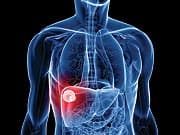Life Extension Magazine®
For most of mankind's existence, scientists wallowed in lethal ignorance regarding the critical need for humans to supplement with enough vitamin D. We fear the same knowledge deficit exists today regarding vitamin K. In this article, you will discover remarkable findings on vitamin K and its rapidly emerging anti-cancer profile. You'll learn of newly identified mechanisms by which vitamin K exerts its potent effects. You will also understand why interest is growing among scientists and even some mainstream physicians about vitamin K's role in combating cancer at multiple stages. What you need to know
Vitamin K: A New Frontier in Cancer PreventionVitamin K2 (menaquinone) has been shown to safely suppress growth and invasion of human hepatocellular carcinoma, a common and deadly form of liver cancer.1,2 It exerts multiple effects on these tumors, modifying growth factors and their receptor molecules in a way that makes them less able to stimulate tumor growth and progression.2-4 It freezes the cell cycle, blocking further replication.5 And it triggers programmed cell death by apoptosis through several distinctive mechanisms.6
Lab studies demonstrate tremendous potential for vitamin K in many other cancer types as well.7 Vitamin K2 induces certain kinds of human leukemia cells to differentiate, or turn into normal white blood cells.8 In cells from certain brain tumors, in stomach cancer, and in colorectal cancer lines, vitamin K halts the reproductive cell cycle and induces apoptosis.9-11 Vitamin K also triggers a DNA-degrading protein that cancer cells normally suppress; thereby preventing tumor cells from repairing themselves effectively.12 Lung cancers are notoriously aggressive and difficult to treat. In several different types of lung cancer, including small cell, squamous cell, and adenocarcinomas, vitamin K induces apoptosis through activation of a "suicide protein."13 Clinical trials of newer chemotherapy agents have been disappointing, but when vitamin K was added to one newer drug, imatinib mesylate, it rapidly suppressed growth in all lung cancer cell lines tested.14 Vitamin K exhibits similarly synergistic effects in bladder and liver cancers as well.15,16 A unique mechanism of vitamin K's activity is so-called "oncosis," a form of stress-activated ischemic cell death to which tumor cells are particularly susceptible.17 Because of their high growth rate, tumor cells consume vast amounts of glucose. And because they can rapidly outgrow their blood supplies, that high metabolism means they use up oxygen rapidly, making them especially vulnerable to oxidant stress—much more so than the healthy tissues around them. Vitamin K targets tumor cells for destruction by stimulating oxidative stress, without toxicity to healthy tissues.18 Another unique mechanism, demonstrated recently in bile duct cancers and leukemia, is autophagy, in which cancer cells essentially "eat" themselves by releasing their own digestive enzymes internally.19,20 By still another unique mechanism, vitamins C and K in combination contribute to cancer cell death by autoschizis, whereby cells simply split open, spilling their contents.21 Finally, three of vitamin K's synergistic anticancer mechanisms have recently been identified. Vitamin K3 inhibits DNA-building enzymes.22 Vitamins K2 and K3 block new blood vessel formation essential to support the rapid growth of tumor tissue.22-24 And vitamin K3 disrupts crucial intracellular communications networks composed of microtubules, preventing the cells from proliferating in a coordinated fashion.25
Liver and Prostate Cancer: Improving Survival RatesVitamin K's promise in managing a variety of advanced solid tumors has been established in vitro and in animal studies, with benefits shown in lung cancers but not in gastrointestinal cancers, when combined with traditional chemotherapy.26,27 Other studies had already demonstrated that massive doses of vitamin K2, up to more than 2.5 grams given IV per day, were safe and caused no enhancement of the chemotherapy toxicity.28 Additional positive findings came in the form of two case reports, also from Japan. In the first, a 72 year-old woman with leukemia who had failed standard therapy experienced complete remission after vitamin K2 was added to her therapeutic regimen.29 In the second, an 85 year-old man with hepatocellular carcinoma after hepatitis C infection chose to take vitamin K but no chemotherapy.30 His tumor markedly regressed by CT scan, and his tumor markers in blood all normalized. A study from Uruguay demonstrated that serum markers in a group of prostate cancer patients indicated tumor cell destruction following supplementation with vitamins C and K.31 Recently published studies have revealed vitamin K's power to reduce recurrence of liver cancer—extending and even saving lives. The first reported on 61 patients documented to be free of their cancers following surgical treatment. Thirty-two were assigned to receive a vitamin K2 analogue called menatetrenone, while 29 received placebo.32 The supplemented group had recurrence of tumors of 12.5% at 12 months, 39.0% at 24 months, and 64.3% at 36 months. In the control group the recurrence rates were significantly higher: 55.2%, 83.2%, and 91.6%, respectively. And 100% of the supplemented group survived a full year, with 87% still alive at 36 months; among controls those numbers were 96.4% and a dismal 64%, respectively. In a smaller study with 45 patients,33 rates of recurrence were only 33.3% in patients treated with vitamin K compared with 50% in controls. And survival rates tended to be modestly higher in treated patients. A 2007 study provided some additional support, showing a significant reduction in tumor recurrence, but not survival rates, over a 3-year period in supplemented patients.34 More studies are needed.
Studies of combination therapies have now provided strong evidence favoring vitamin K2 both in liver and prostate cancer. A group of US urologists studied the combination of vitamin K3, 50 mg per day, plus vitamin C at 5,000 mg per day in treating prostate cancer patients who had failed standard therapy.35 They showed that treatment significantly decreased the velocity of rise in PSA, the serum marker of disease, while increasing the time it took for PSA levels to double. And only one patient in this group of advanced cancer patients died in the 14 months of treatment. This finding demonstrates vitamin K's disease-fighting credentials in a particularly compelling fashion, when combined with another readily available supplement. The combination of vitamin K2 plus a drug in the ACE-inhibitor category (both of which reduce tumor blood vessel growth) also produced a marked decrease in recurrence of hepatocellular carcinoma.36 The same research group showed that they could use that combination to stop a precancerous nodule from developing into liver cancer in a patient with hepatitis C-related cirrhosis.37 Vitamin K2 in Action: The Case of Myelodysplastic Syndrome"Myelodysplastic syndrome" (MDS) is a disorder related to leukemia; in fact it was formerly known as "pre-leukemia."38,39 In patients with MDS, the bone marrow begins churning out increasingly young white blood cells of various kinds. In most cases it goes on to full-blown leukemia, with all of the disastrous consequences of that disease. But unlike leukemia, MDS cells, at least early on, can be induced to develop into mature normal blood cells.39,40 And that's where vitamin K comes in.
Vitamin K treatment of bone marrow cells from MDS patients potently induces apoptosis (programmed cell death) of the leukemic cells, with the effect much more prominent on blast cells than on mature white cells.41,42 Vitamin K2 also induces MDS cells to differentiate into healthy white blood cells, even when full-blown leukemia has developed.43 Successful therapy of MDS with vitamin K2 was first reported in 1999, in an 80-year-old woman with persistent anemia from the disease. Prior to treatment she had required regular blood transfusions; 14 months later she was independent of them.44 Similar benefits were found in a small group of MDS patients with refractory anemia in 2002.45 And some improvements were also found in MDS patients with low white blood counts compared with those receiving no treatment.46 The combination of vitamin K2 with vitamin D3 achieved good differentiation in a lab study of leukemia cells, suggesting that it might be effective therapy for both MDS and leukemia.47 In a clinical study in mid-2010, the addition of vitamin D3 to vitamin K2 more than doubled the response rate of MDS patients with refractory anemia and low white blood counts, from 13% to 30%. Those are big numbers for conditions traditionally difficult to treat with standard chemotherapy!48
SummaryCancer remains a deadly threat for millions of aging Americans, despite decades of aggressive research. Standard cancer medications can only help after a cancer is discovered, and even then they are limited by toxicity. Standard cancer treatments attack only one or a few biochemical steps in the long cascade of events leading to tumor development. Long associated only with blood clotting, vitamin K is now known to have effects on tissues throughout the body, including most of the steps leading up to cancer. Recent discoveries about vitamin K illustrate the tremendous breadth of its targets, spanning virtually every phase in cancer's deadly progress. A solid base of laboratory science is complemented by compelling clinical evidence that vitamin K can prevent, and in some cases treat, a variety of common and dangerous cancers. If you have any questions on the scientific content of this article, please call a Life Extension® Wellness Specialist at 1-866-864-3027. |
|||||||
| References | |||||||
|
1. Mizuta T, Ozaki I. Clinical application of vitamin K for hepatocellular carcinoma. Clin Calcium. 2007 Nov;17(11):1693-9. 2. Otsuka M, Kato N, Shao RX, et al. Vitamin K2 inhibits the growth and invasiveness of hepatocellular carcinoma cells via protein kinase A activation. Hepatology. 2004 Jul;40(1):243-51. 3. Nishikawa Y, Wang Z, Kerns J, Wilcox CS, Carr BI. Inhibition of hepatoma cell growth in vitro by arylating and non-arylating K vitamin analogs. Significance of protein tyrosine phosphatase inhibition. J Biol Chem. 1999 Dec 3;274(49):34803-10. 4. Yamamoto T, Nakamura H, Liu W, et al. Involvement of hepatoma-derived growth factor in the growth inhibition of hepatocellular carcinoma cells by vitamin K(2). J Gastroenterol. 2009;44(3):228-35. 5. Kuriyama S, Hitomi M, Yoshiji H, et al. Vitamins K2, K3 and K5 exert in vivo antitumor effects on hepatocellular carcinoma by regulating the expression of G1 phase-related cell cycle molecules. Int J Oncol. 2005 Aug;27(2):505-11. 6. Matsumoto K, Okano J, Nagahara T, Murawaki Y. Apoptosis of liver cancer cells by vitamin K2 and enhancement by MEK inhibition. Int J Oncol. 2006 Dec;29(6):1501-8. 7. Kim HJ, Mun JY, Chun YJ, Choi KH, Ham SW, Kim MY. Effects of a naphthoquinone analog on tumor growth and apoptosis induction. Arch Pharm Res. 2003 May;26(5):405-10. 8. Sakai I, Hashimoto S, Yoda M, et al. Novel role of vitamin K2: a potent inducer of differentiation of various human myeloid leukemia cell lines. Biochem Biophys Res Commun. 1994 Dec 15;205(2):1305-10. 9. Sun L, Yoshii Y, Miyagi K, Ishida A. Proliferation inhibition of glioma cells by vitamin K2. No Shinkei Geka. 1999 Feb;27(2):119-25. 10. Tokita H, Tsuchida A, Miyazawa K, et al. Vitamin K2-induced antitumor effects via cell-cycle arrest and apoptosis in gastric cancer cell lines. Int J Mol Med. 2006 Feb;17(2):235-43. 11. Ogawa M, Nakai S, Deguchi A, et al. Vitamins K2, K3 and K5 exert antitumor effects on established colorectal cancer in mice by inducing apoptotic death of tumor cells. Int J Oncol. 2007 Aug;31(2):323-31. 12. Taper HS, Jamison JM, Gilloteaux J, Gwin CA, Gordon T, Summers JL. In vivo reactivation of DNases in implanted human prostate tumors after administration of a vitamin C/K(3) combination. J Histochem Cytochem. 2001 Jan;49(1):109-20. 13. Yoshida T, Miyazawa K, Kasuga I, et al. Apoptosis induction of vitamin K2 in lung carcinoma cell lines: the possibility of vitamin K2 therapy for lung cancer. Int J Oncol. 2003 Sep;23(3):627-32. 14. Yokoyama T, Miyazawa K, Yoshida T, Ohyashiki K. Combination of vitamin K2 plus imatinib mesylate enhances induction of apoptosis in small cell lung cancer cell lines. Int J Oncol. 2005 Jan;26(1):33-40. 15. Kassouf W, Highshaw R, Nelkin GM, Dinney CP, Kamat AM. Vitamins C and K3 sensitize human urothelial tumors to gemcitabine. J Urol. 2006 Oct;176(4 Pt 1):1642-7. 16. Wei G, Wang M, Hyslop T, Wang Z, Carr BI. Vitamin K enhancement of Sorafenib-mediated HCC cell growth inhibition in vitro and in vivo. Int J Cancer. 2010 Jun 7. 17. Scott GK, Atsriku C, Kaminker P, et al. Vitamin K3 (menadione)-induced oncosis associated with keratin 8 phosphorylation and histone H3 arylation. Mol Pharmacol. 2005 Sep;68(3):606-15. 18. Verrax J, Taper H, Buc Calderon P. Targeting cancer cells by an oxidant-based therapy. Curr Mol Pharmacol. 2008 Jan;1(1):80-92. 19. Enomoto M, Tsuchida A, Miyazawa K, et al. Vitamin K2-induced cell growth inhibition via autophagy formation in cholangiocellular carcinoma cell lines. Int J Mol Med. 2007 Dec;20(6):801-8. 20. Yokoyama T, Miyazawa K, Naito M, et al. Vitamin K2 induces autophagy and apoptosis simultaneously in leukemia cells. Autophagy. 2008 Jul 1;4(5):629-40. 21. Verrax J, Cadrobbi J, Delvaux M, et al. The association of vitamins C and K3 kills cancer cells mainly by autoschizis, a novel form of cell death. Basis for their potential use as coadjuvants in anticancer therapy. Eur J Med Chem. 2003 May;38(5):451-7. 22. Matsubara K, Kayashima T, Mori M, Yoshida H, Mizushina Y. Inhibitory effects of vitamin K3 on DNA polymerase and angiogenesis. Int J Mol Med. 2008 Sep;22(3):381-7. 23. Taper HS. Altered deoxyribonuclease activity in cancer cells and its role in non toxic adjuvant cancer therapy with mixed vitamins C and K3. Anticancer Res. 2008 Sep-Oct;28(5A):2727-32. 24. Yoshiji H, Kuriyama S, Noguchi R, et al. Combination of vitamin K2 and the angiotensin-converting enzyme inhibitor, perindopril, attenuates the liver enzyme-altered preneoplastic lesions in rats via angiogenesis suppression. J Hepatol. 2005 May;42(5):687-93. 25. Acharya BR, Choudhury D, Das A, Chakrabarti G. Vitamin K3 disrupts the microtubule networks by binding to tubulin: a novel mechanism of its antiproliferative activity. Biochemistry. 2009 Jul 28;48(29):6963-74. 26. Tetef M, Margolin K, Ahn C, et al. Mitomycin C and menadione for the treatment of lung cancer: a phase II trial. Invest New Drugs. 1995;13(2):157-62. 27. Tetef M, Margolin K, Ahn C, et al. Mitomycin C and menadione for the treatment of advanced gastrointestinal cancers: a phase II trial. J Cancer Res Clin Oncol. 1995;121(2):103-6. 28. Margolin KA, Akman SA, Leong LA, et al. Phase I study of mitomycin C and menadione in advanced solid tumors. Cancer Chemother Pharmacol. 1995;36(4):293-8. 29. Fujita H, Tomiyama J, Tanaka T. Vitamin K2 combined with all-trans retinoic acid induced complete remission of relapsing acute promyelocytic leukaemia. Br J Haematol. 1998 Nov;103(2):584-5. 30. Nouso K, Uematsu S, Shiraga K, et al. Regression of hepatocellular carcinoma during vitamin K administration. World J Gastroenterol. 2005 Nov 14;11(42):6722-4. 31. Lasalvia-Prisco E, Cucchi S, Vazquez J, Lasalvia-Galante E, Golomar W, Gordon W. Serum markers variation consistent with autoschizis induced by ascorbic acid-menadione in patients with prostate cancer. Med Oncol. 2003;20(1):45-52. 32. Mizuta T, Ozaki I, Eguchi Y, et al. The effect of menatetrenone, a vitamin K2 analog, on disease recurrence and survival in patients with hepatocellular carcinoma after curative treatment: a pilot study. Cancer. 2006 Feb 15;106(4):867-72. 33. Hotta N, Ayada M, Sato K, et al. Effect of vitamin K2 on the recurrence in patients with hepatocellular carcinoma. Hepatogastroenterology. 2007 Oct-Nov;54(79):2073-7. 34. Kakizaki S, Sohara N, Sato K, et al. Preventive effects of vitamin K on recurrent disease in patients with hepatocellular carcinoma arising from hepatitis C viral infection. J Gastroenterol Hepatol. 2007 Apr;22(4):518-22. 35. Tareen B, Summers JL, Jamison JM, et al. A 12 week, open label, phase I/IIa study using apatone for the treatment of prostate cancer patients who have failed standard therapy. Int J Med Sci. 2008;5(2):62-7. 36. Yoshiji H, Noguchi R, Toyohara M, et al. Combination of vitamin K2 and angiotensin-converting enzyme inhibitor ameliorates cumulative recurrence of hepatocellular carcinoma. J Hepatol. 2009 Aug;51(2):315-21. 37. Yoshiji H, Noguchi R, Yamazaki M, et al. Combined treatment of vitamin K2 and angiotensin-converting enzyme inhibitor ameliorates hepatic dysplastic nodule in a patient with liver cirrhosis. World J Gastroenterol. 2007 Jun 21;13(23):3259-61. 38. Fisher WB, Armentrout SA, Weisman R, Jr., Graham RC, Jr. "Preleukemia". A myelodysplastic syndrome often terminating in acute leukemia. Arch Intern Med. 1973 Aug;132(2):226-32. 39. Albitar M, Manshouri T, Shen Y, et al. Myelodysplastic syndrome is not merely "preleukemia". Blood. 2002 Aug 1;100(3):791-8. 40. Cazzola M, Malcovati L. Prognostic classification and risk assessment in myelodysplastic syndromes. Hematol Oncol Clin North Am. 2010 Apr;24(2):459-68. 41. Yaguchi M, Miyazawa K, Otawa M, et al. Vitamin K2 selectively induces apoptosis of blastic cells in myelodysplastic syndrome: flow cytometric detection of apoptotic cells using APO2.7 monoclonal antibody. Leukemia. 1998 Sep;12(9):1392-7. 42. Nishimaki J, Miyazawa K, Yaguchi M, et al. Vitamin K2 induces apoptosis of a novel cell line established from a patient with myelodysplastic syndrome in blastic transformation. Leukemia. 1999 Sep;13(9):1399-405. 43. Miyazawa K, Yaguchi M, Funato K, et al. Apoptosis/differentiation-inducing effects of vitamin K2 on HL-60 cells: dichotomous nature of vitamin K2 in leukemia cells. Leukemia. 2001 Jul;15(7):1111-7. 44. Takami A, Nakao S, Ontachi Y, Yamauchi H, Matsuda T. Successful therapy of myelodysplastic syndrome with menatetrenone, a vitamin K2 analog. Int J Hematol. 1999 Jan;69(1):24-6. 45. Abe Y, Muta K, Hirase N, et al. Vitamin K2 therapy for myelodysplastic syndrome. Rinsho Ketsueki. 2002 Feb;43(2):117-21. 46. Takami A, Asakura H, Nakao S. Menatetrenone, a vitamin K2 analog, ameliorates cytopenia in patients with refractory anemia of myelodysplastic syndrome. Ann Hematol. 2002 Jan;81(1):16-9. 47. Iguchi T, Miyazawa K, Asada M, Gotoh A, Mizutani S, Ohyashiki K. Combined treatment of leukemia cells with vitamin K2 and 1alpha,25-dihydroxy vitamin D3 enhances monocytic differentiation along with becoming resistant to apoptosis by induction of cytoplasmic p21CIP1. Int J Oncol. 2005 Oct;27(4):893-900. 48. Akiyama N, Miyazawa K, Kanda Y, et al. Multicenter phase II trial of vitamin K(2) monotherapy and vitamin K(2) plus 1alpha-hydroxyvitamin D(3) combination therapy for low-risk myelodysplastic syndromes. Leuk Res. 2010 Sep;34(9):1151-7. 49. McCann JC, Ames BN. Vitamin K, an example of triage theory: is micronutrient inadequacy linked to diseases of aging? Am J Clin Nutr. 2009 Oct;90(4):889-907. |



